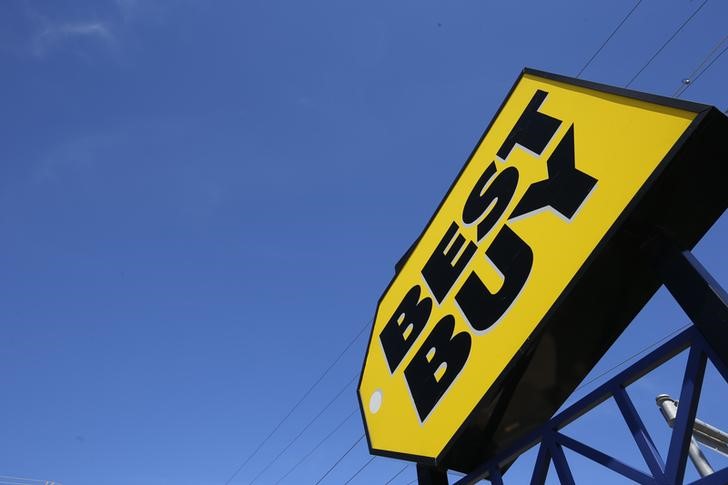How are energy investors positioned?
On Friday, UBS analyst Michael Lasser adjusted the price target for Best Buy (NYSE:BBY) shares to $90 from the previous target of $95, while still maintaining a Buy rating on the stock. According to InvestingPro data, the stock currently trades at $66.29, suggesting potential upside based on the new target. Lasser’s commentary highlighted that Best Buy’s first-quarter results might have given more reason for pessimism than optimism among investors, reflected in the stock’s significant 21.7% decline year-to-date. He pointed out that the company’s comparable sales for the quarter were likely below the expectations of the buy-side. Additionally, the guidance for second-quarter comparable sales suggests that the situation may not improve significantly.
Lasser noted that while the top-line comparisons for Best Buy are set to become more challenging in the latter half of the year, the company’s earnings per share (EPS) outlook was only slightly reduced by about 3% at the midpoint. Best Buy has made considerable efforts to lessen its exposure to China and is aiming to maintain its operating margin rate at the same level as the previous year. The analyst believes that Best Buy’s actions in these areas warrant recognition, particularly given its FAIR financial health score and impressive 23-year history of maintaining dividend payments, as reported by InvestingPro.
Despite the reduced price target, Lasser suggests that the market’s reaction to Best Buy’s performance might be somewhat exaggerated. He speculates that the current stock price seems to imply that Best Buy could earn significantly below its revised EPS guidance of $6.15 to $6.30. The stock currently trades at a P/E ratio of 17.44x, with analyst targets ranging from $63 to $95. Lasser’s analysis implies that an 11-12x price-to-earnings (P/E) multiple would suggest an EPS of approximately $5.50 to $6.00. He also hinted that the stock’s valuation could see a positive adjustment if there is additional relief from tariffs in the future. Get access to Best Buy’s comprehensive Pro Research Report and 10+ additional ProTips by subscribing to InvestingPro.
In other recent news, Best Buy’s first-quarter earnings have prompted several analysts to adjust their outlook on the company. Piper Sandler has maintained an Overweight rating but revised the price target to $82, citing manageable tariff impacts and potential growth from upcoming product innovations. KeyBanc Capital Markets continues to hold a Sector Weight rating, noting a slight decline in comparable store sales, with management adjusting 2025 guidance to reflect tariff effects. Wedbush reduced its price target to $70 while maintaining a Neutral stance, highlighting concerns over changing consumer spending habits due to tariffs.
Goldman Sachs adjusted Best Buy’s price target to $94, retaining a Buy rating, and noted that while same-store sales have declined, new products could improve trends. DA Davidson also reduced the price target to $90, maintaining a Buy rating, and pointed out improvements in Best Buy’s tariff management and potential benefits from product cycle accelerations. Despite challenges, Best Buy has been proactive in reducing its cost of goods sold exposure to China, and investments in alternative revenue streams are expected to support future growth. Analysts generally agree that while the company faces hurdles, there are opportunities for recovery and growth driven by innovation and strategic initiatives.
This article was generated with the support of AI and reviewed by an editor. For more information see our T&C.
